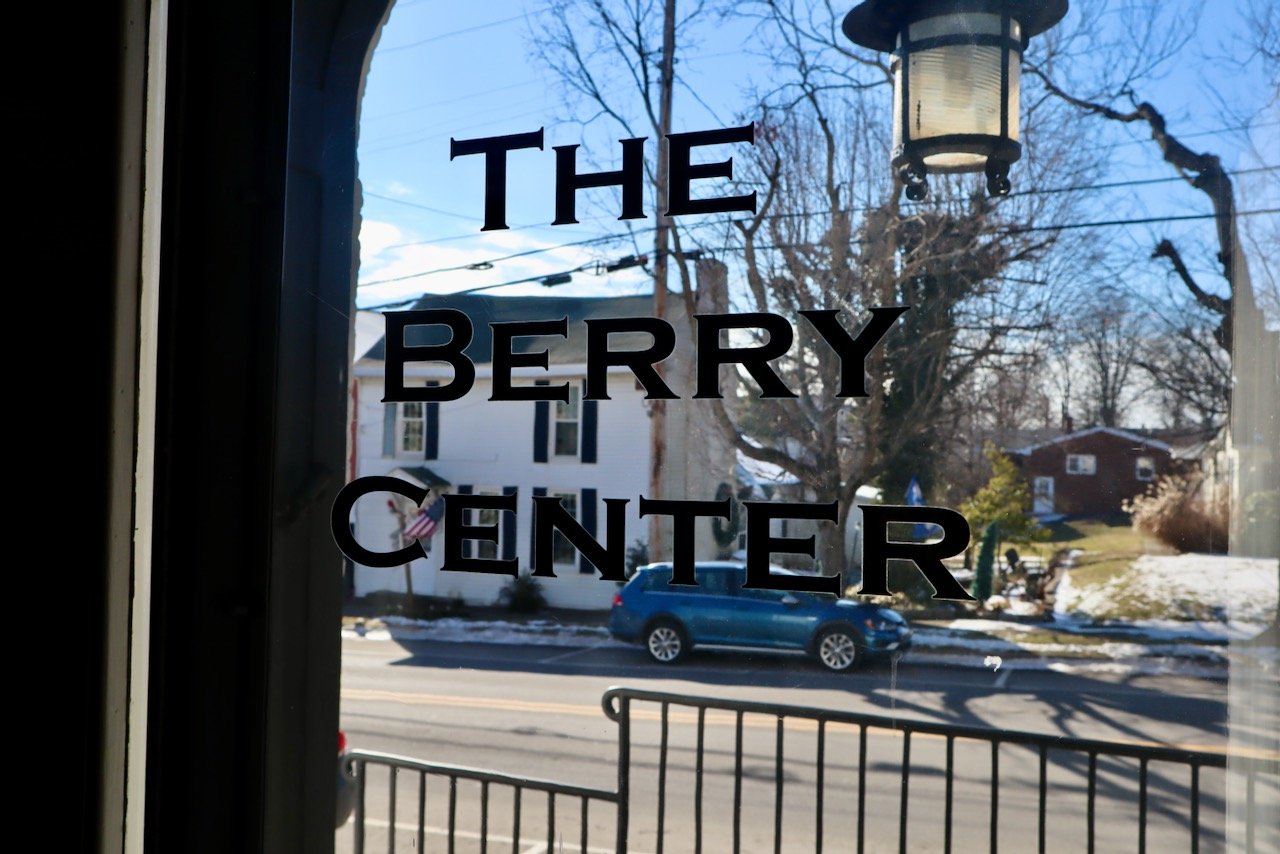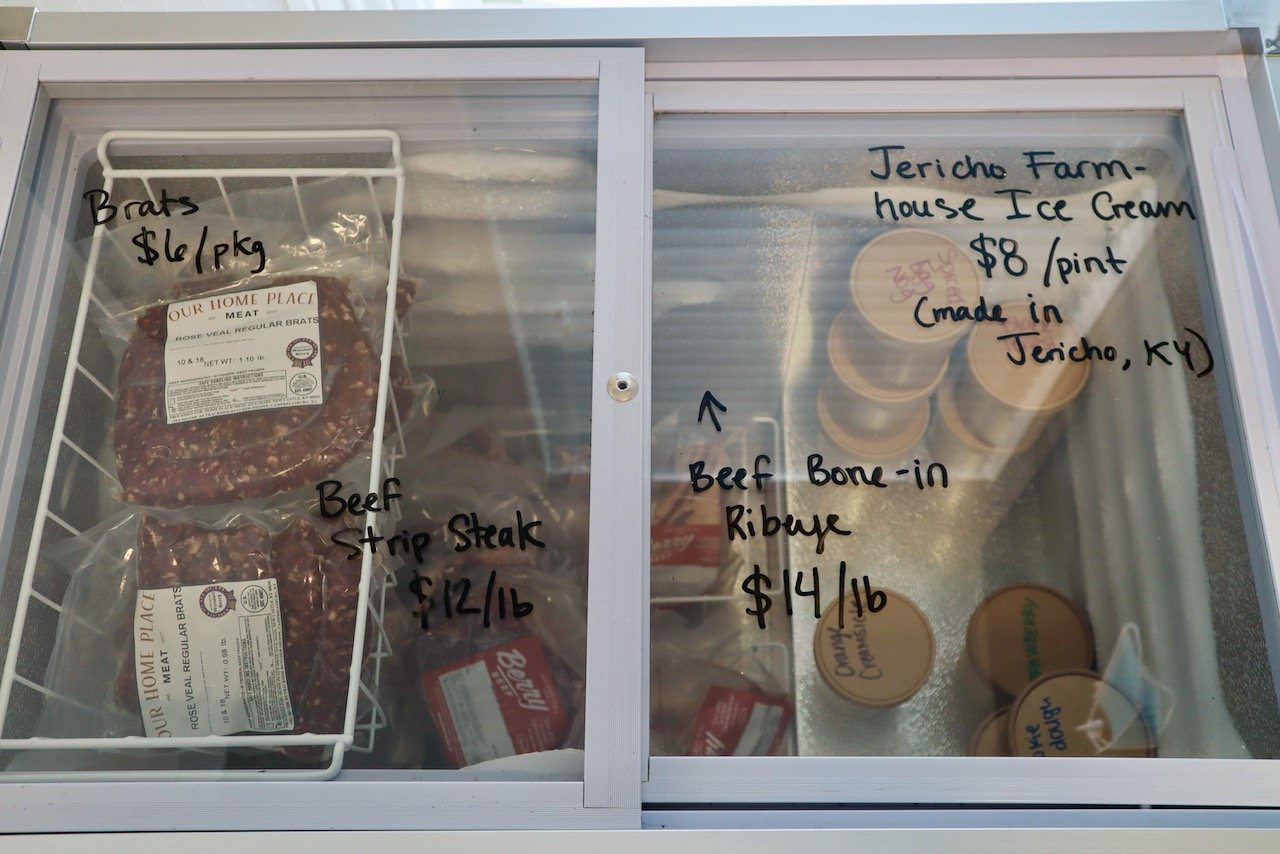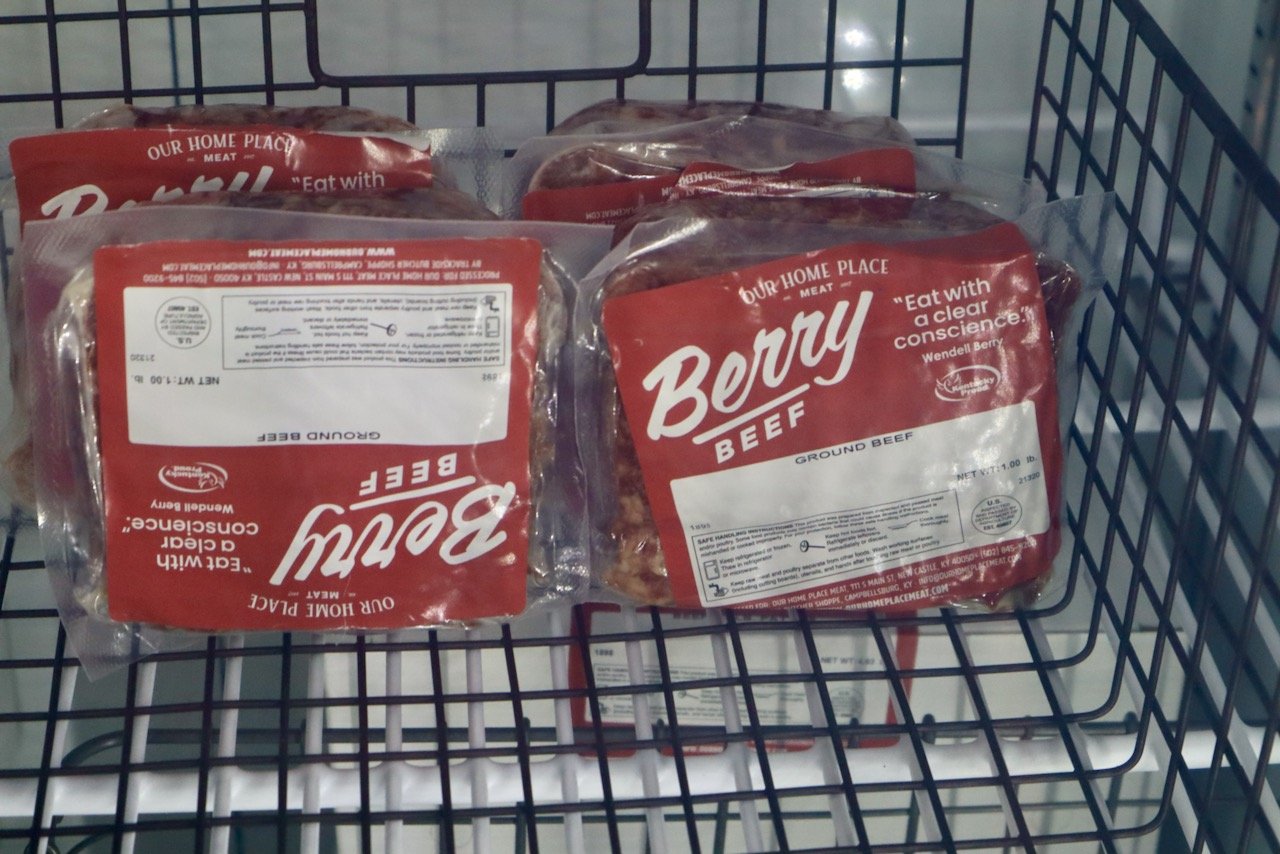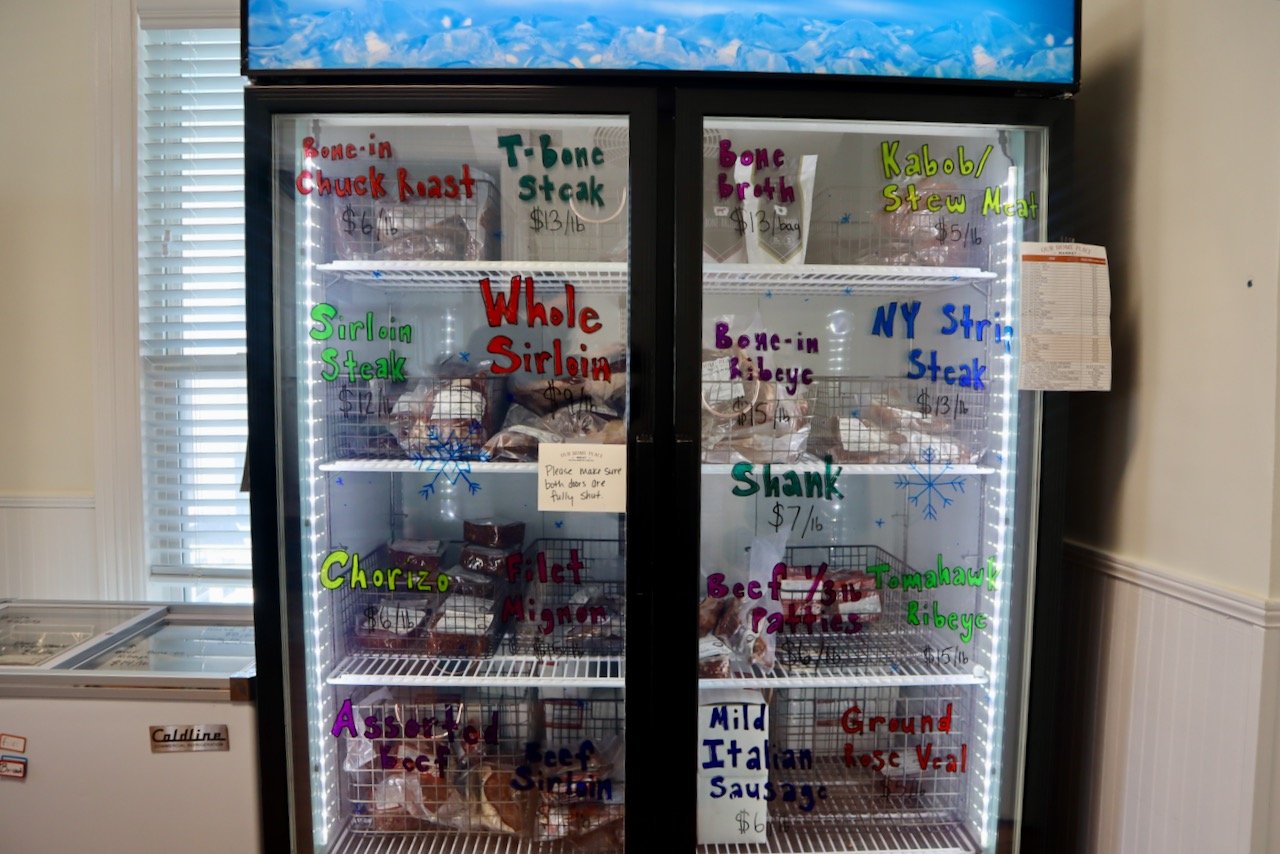Homecoming
The Berry Center and Our Home Place Meat
by Donna Hecker
“Our history forbids us to be surprised that an orthodoxy of thought should become narrow, rigid, mercenary, morally corrupt, and vengeful against dissenters. This has happened over and over again.”
Wendell Berry wrote these words in The Unsettling of America: Culture and Agriculture in 1977. Earl Butz’s term as the United States Secretary of Agriculture had just come to an ignominious end but his dictum to farmers to “get big or get out” was by then firmly and all but irreversibly entrenched in the rapidly degrading soil of our farmlands.
The Unsettling of America was Berry’s impassioned dissent to the industrial food system promoted by Earl Butz and his big business allies, and a clarion call to restore sanity and sanctity to our relationship with the natural world.
Berry continues to be America’s most eloquently persuasive voice for healing ourselves — physically and spiritually — by healing our planet, one acre at a time. He argues that our individual actions eventually affect all of us, and the places where we live.
Berry’s essays cover much ground but always come home to one truth: that we are of a place and that place is of us. We are connected to the land, agriculture is culture, and a restaurant like Holly Hill Inn can only exist where it is.
The food we serve, the farms where it is grown and the farmers who tend them, the skill and respect with which we prepare that food: all this expresses our unique location in central Kentucky. As does Ray Papka’s art on our walls, the Tater Knob pottery on our tables, the native plants in our garden.
We are fully integrated into the local agriculture economy. From planting to harvest, from farm to kitchen, from kitchen to table and on to our guests, it’s one continuous cycle.
To better understand this dynamic, we spent an afternoon at The Berry Center in New Castle, Ky. The center was founded in 2011 by Mary Berry, to put her father’s writing to work in practical ways. The Berry Center seeks real-life solutions to the challenge of healing our world.
At The Berry Center’s core is an archive of papers belonging to Wendell Berry, his brother Senator John M. Berry Jr. and their father John M. Berry Sr. These papers preserve agrarian history and provide a blueprint for future success based on the model created by the Burley Tobacco Growers Cooperative Association, of which John M. Berry Sr. was once president.
The Berry Center Archivist Michele Guthrie explained that the burley growers’ model was built on two guiding principles — pricing parity and production controls — which are in use today at Our Home Place Meat, another Berry Center initiative. Since Kentucky’s rolling hills are ideal for grazing, The Berry Center, in relation to local farming practices, focuses on livestock production, with Our Home Place Meat providing the framework.
Our Home Place Meat sells Rose Beef from weanling calves and Berry Beef from older animals. Back when dairy farms dotted the Kentucky landscape, farmers needed a market for their bull calves and Rose Beef provided that market. Today the calves which furnish Rose Beef are from British meat breeds— Angus, Hereford and Shorthorn, and others.
While still nursing, the calves are moved to pasture with their mothers, where they’ll start grazing grasses too. They’re not permitted any grain feed, only milk and grass. Because the calves have not been exclusively mild-fed or confined in any way, the meat is a distinctive rose color, hence the name.
Under strict Our Home Place Meat protocols, the calves must be certified ASH-free and receive no grain or medicated mineral supplements. The animals must also be treated humanely and subjected to as little stress as possible, following Berry’s teaching that “it all turns on affection.”
According to Our Home Place Meat Director Beth Douglas, the business contracts with 11 Henry County farmers to raise cattle and commits to paying a fair market price for them. When the animals are ready for slaughter, they’re transported a short distance to the Trackside Butcher Shoppe, where Home Place meat is processed and available for wholesale and retail sale.
Rose Beef production has several potential benefits for small farmers — they receive a faster return on their investment in the animal; it keeps herd sizes small and manageable; and grazing lands are better sustained. Chefs like Ouita Michel love it because they gain access to a delicious and hard-to-find ingredient, which they know has been produced carefully and humanely.
Chef Ouita learned about Rose Beef as a student at the Culinary Institute of America where they cooked with it and enjoyed a dinner of it prepared by Lidia Bastianich. That meat was supplied by western ranchers. Chef Ouita was unable to reliably source it locally until she became involved with the early development of Our Home Place Meat and the Trackside Butcher Shoppe.
She still remembers a favorite dish made with Our Home Place Meat Rose Beef. “For a special dinner for Gilda’s Club at Old Forester, we did a blanquette de veau and it was the best I’ve ever tasted.”
The whole process exemplifies the values extolled by Wendell Berry. Farmers work their land to its best potential; they preserve the art of animal husbandry and they receive a fair price; Trackside pays its workers a decent wage; and the meat is purchased by customers committed to supporting the system.
As in cooking, the process improves each time a step is repeated, and The Berry Center is there to provide educational, financial and moral support along the way. Chef Ouita likes to remind us that, “as consumers, our role is to engage in purchasing in order to create an economic driver. It’s our role as a restaurant group but also as individuals.”
Although its focus is on the local, The Berry Center espouses a big tent approach and a multidisciplinary approach to problem solving. As Operations Director Ben Aguilar put it, there are “choices we are obligated to make by factors beyond our control, (which) cause us to do harm and we resist that.”
The Berry Center wants to make sustainable farming the norm and believes that for it to be successful, a lot of people will need to practice it. The center teaches that such sustainability will help “kindly restore” the health of people and communities.
Which brings us back home. Berry once wrote “surely, there has never been a people more ominously and painfully divided than we are now — both against each other and within ourselves.”
Luckily, he offered an antidote —
“The only real, practical, hope-giving way to remedy the fragmentation that is the disease of the modern spirit is a small and humble way … one must begin in one’s own life the private solutions that can only in turn become public solutions.”
In Kentucky over the last 20 years, we have seen private solutions become public solutions. Farmers markets have flourished, processing capacity has grown, distribution systems continue to improve.
Because of leaders like Chef Ouita Michel, local producers have access to wholesale markets. Because families have learned to value fresh, wholesome food, farmers are able to produce more of it. Because careful food production preserves the land, our physical environment is healthier. Because our physical environment is healthier, so are we.
And because of Wendell Berry and The Berry Center, we can learn to heal our world. As Berry wrote, “we have on our side one great force: the power of Creation, with good care, with kindly use, to heal itself.”
Our Home Place Meat is available online and at the following retail locations in Central Kentucky:
Locals Food Hub & Pizza Pub, Frankfort
Good Foods Market and Café, Lexington
Trackside Butcher Shoppe, Campbellsburg
© 2022, Holly Hill Inn/Ilex Summit, LLC and its affiliates, All Rights Reserved
Related Content
Our Home Place Pastitsio
Tootsie Nelson’s It’s All Greek to Me cooking class left us hungry for more flavors from Greece! Our pastitsio recipe, named for Our Home Place Meats, was inspired by one from Ronald Johnson, the late American poet and cookbook author. Back in the 1960s, Ronald Johnson briefly taught a creative writing class at the University of Kentucky while Wendell Berry was on leave.






